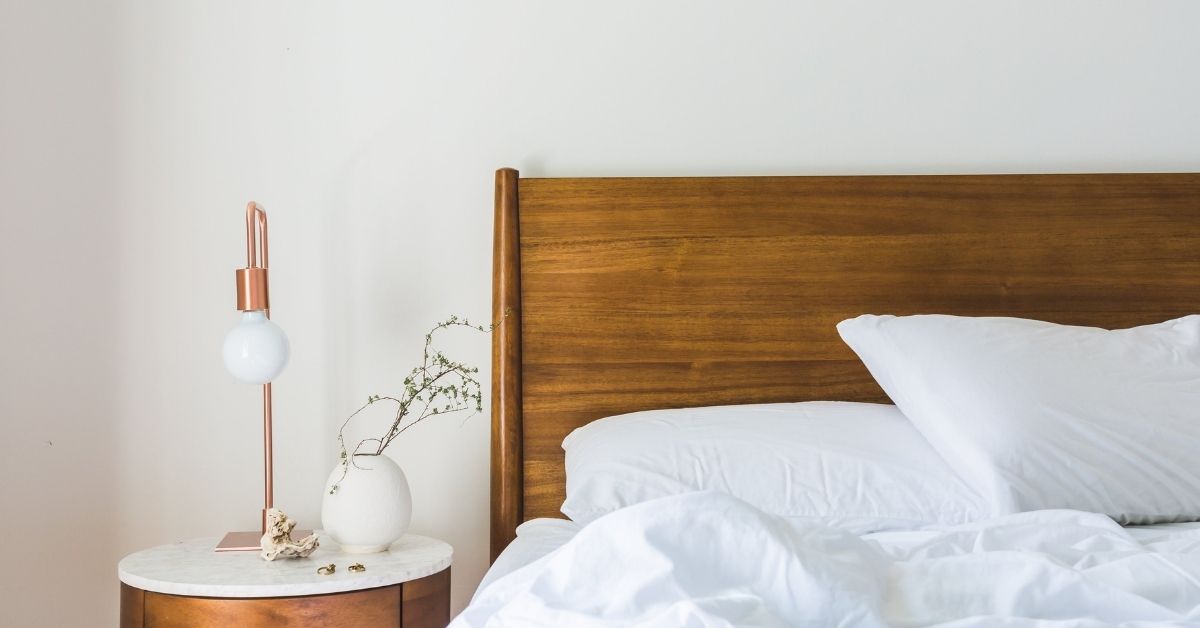A good night’s sleep is one of the foundations for health. This is one thing that can be overlooked in today’s society leading to fatigue and other issues. Here are a few things you can eat and drink to lead to better sleep.
Why Sleep is Such an Issue for so Many
To start, lets quickly remind ourselves that for most of human history we didn’t have an issue with sleeping. We are hardwired to fall asleep when we get tired and wake up when we’ve had enough sleep. So, what’s changed since humans started needing an alarm clock and caffeine to wake up in the morning? Modern society may be to blame for these new habits.
Electric lighting has made the biggest change. Pre-Edison you went to bed when it got dark. Candles, fireplaces, and kerosene lanterns could keep you up but they were both expensive and dangerous. With the advent of the lightbulb, it now made day and night interchangeable. The first step to less sleep.
Social Media Overload
We have a lot more information to keep track of these days. Social media made it possible for the news to be seen 24/7. Something is always happening somewhere and we are ingrained to want to keep in the know. Along with wanting to stay on top of all the news, we have also become mindless scrollers and binge-watchers. Those who use social media the most, especially right before bed, experience the greatest disruptions in sleep.
Blue Light Issues
Maybe it’s not so much social media, but more so the blue light your phone, TV, computers, and other electronic devices give off. These electronic devices are heavy on blue light. The color-perceiving cells in our eyes interpret this light as daytime sun, sending signals to the rest of our body to stay awake.
Blue light suppresses the production of melatonin at night, which makes it harder to fall asleep and stay asleep. There has even been some studies to show how this light negatively affects our endocrine systems. Leading to an increased risk of Type 2 diabetes, heart disease, and obesity.
Mental Health Issues
Industrialized societies threaten our mental health leading to poor sleep habits. Most insomnia cases are related to anxiety or depression. A lack of healthy sleep can lead to psychological issues as well. Being aware of how a lack of sleep might affect you is key.
Why Meal Timing is Important
Meal timing and sleep can impact hormonal levels that influences satiety and food intake. The hormones your body makes rises and falls throughout the day. Sometimes your body prefers to store fat and other times it’s trying to burn fat.
One of the hormones that is sensitive to timing is ghrelin, also known as the hunger hormone. It impacts your sleep quality and brain health. Even if you have just a small snack at night it can turn on your whole digestive system.
Another common topic in today’s world is fasting. This can help or hurt your sleep depending on your timing. Humans evolved to eat during the day and not at night. If you’re fasting all day and then eating a huge meal at night your body may get confused. When your body gets a big surge of calories and no immediate need to burn them, it is more inclined to store them as fat.
Nutrients That Impact Sleep
These are just some of the nutrients that will help you fall asleep and more importantly, stay asleep. Getting enough fiber in your diet is key to a good night’s sleep. In a study completed fiber correlated to more deep, slow-wave sleep resulting in more restoring sleep. Folate has been linked to lower rates of insomnia and makes you more sleepy before bedtime.
Complex carbohydrates increase serotonin causes you to feel more satisfied. This way you dont have to chase after the next meal, so you transition toward relaxation. They also lower the stress hormone cortisol. Magnesium is another key ingredient for sleep. Having enough magnesium can have a positive impact on your body when it comes to depression and anxiety.
As we all know, melatonin is helpful when sleeping. It’s a hormone produced in the pineal gland that helps with sleep initiation and maintenance. You can also get adequate amounts of melatonin from certain foods.
Best Plant-Based Foods to Sleep Better
Now that we have established with nutrients are beneficial, let’s dive into the foods that help to improve your sleep. Some foods include:
- Pumpkin Seeds
- Kiwis
- Mushrooms
- Whole Grain Rice
- Oats
- Pistachios
- Almonds
- Edamame
Best Beverages to Sleep Better
Sleepytime drinks have been popular and still are on that path. Here are some beverages that help to calm your mind and your body relax.
- Chamomile Tea
- Tart Cherry Juice
- Lemon Balm Tea
- Valerian Tea
- Lavender Tea
Nitty Gritty on Better Sleep
The facts are in! The right drinks and foods can support your ability to have a good nights rest. Sleep disrupters are everywhere and it’s up to us to be in control of our quality of sleep. Eating the right foods and the right times can make all the difference along with being mindful of your time on blue light emitting devices. You are now well on your way to better sleep
Contact the wellness experts at Innovative Business Consultants at 712-277-2424 or fill out this form online. We look forward to serving you!





